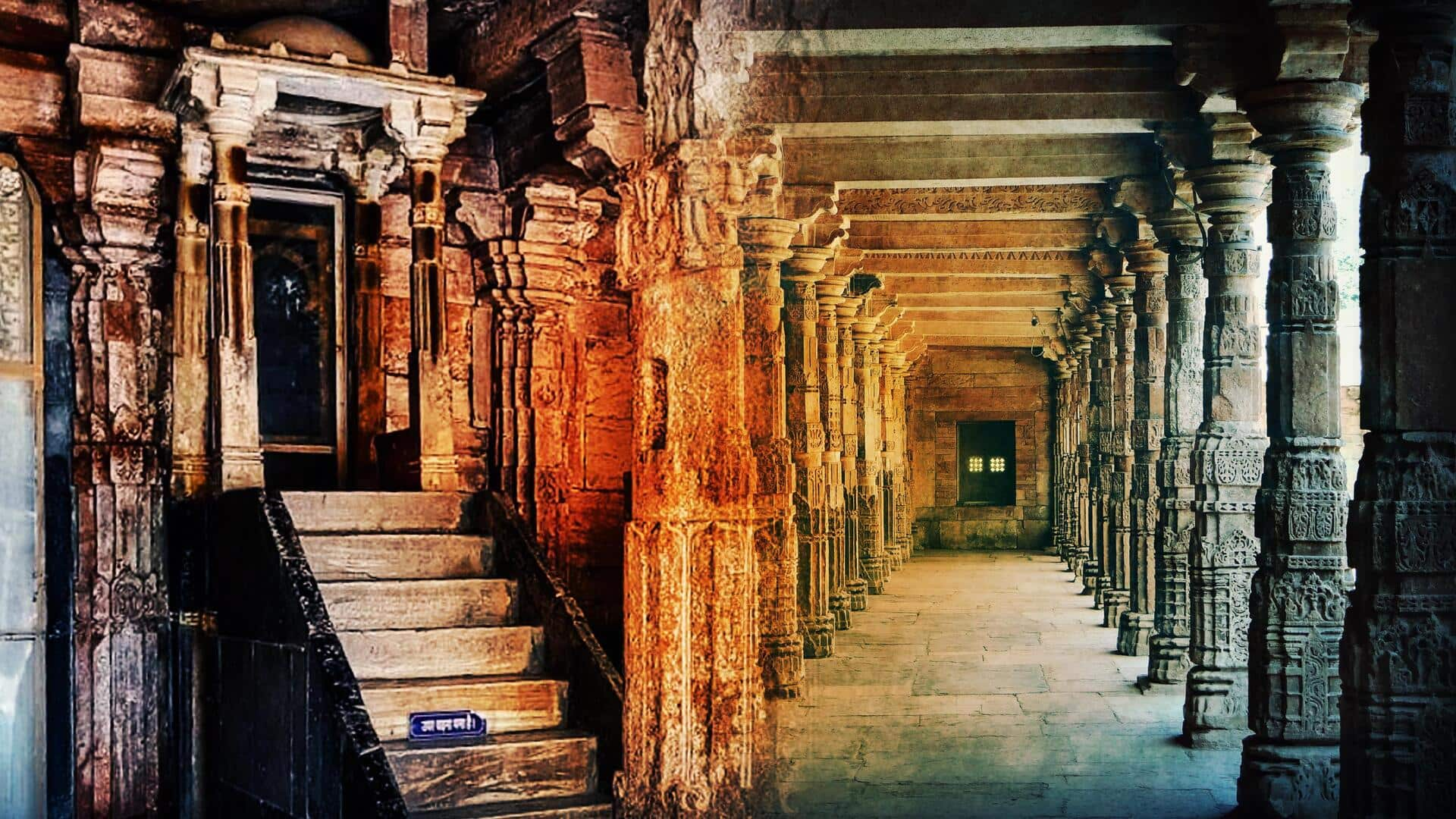
ASI requests 8 more weeks to complete Bhojshala survey
What's the story
The Archaeological Survey of India (ASI) has requested an additional eight weeks to complete a court-ordered scientific study of the Bhojshala complex in Dhar district, Madhya Pradesh. Its original deadline expired on Tuesday, the 33rd day of the survey. The ASI cited the need for more time to "understand the nature of the exposed parts of the disputed complex's structures" in their petition to the Indore division of the Madhya Pradesh High Court.
Context
Why does this story matter?
The 11th-century monument has been used as a place of worship by both Hindus and Muslims under an ASI order dated April 7, 2003. The Bhojshala complex is believed by Hindus to be a temple dedicated to Goddess Vagdevi (Saraswati), while Muslims regard it as the site of the Kamal Maula Mosque. In May 2022, the Hindu Front for Justice moved the MPHC, demanding a scientific survey to "determine the character and nature of contentious premises."
Court order
Plea likely to be heard on April 29
The ASI's plea is likely to be heard on April 29, when the the government agency is required to produce a report on its findings, as mandated by the court on March 11. The ASI began its survey on March 22, following the court's order to carry out the survey on March 11. The survey includes comprehensive documentation of the entire monument and its surrounding area using scientific instruments.
Survey progress
Supreme Court upheld the high court's decision
Despite opposition from Muslim groups fearing potential harm to their place of worship and possible religious discord, the Supreme Court upheld the high court's decision on the survey on April 1. However, it prohibited the ASI from excavation at this protected 11th-century monument. "It is made clear that no physical excavation should be taken which will change the character of the premises in question," the bench had said.
NGRI involvement
ASI has engaged NGRI to conduct a GPR survey
In addition to its own efforts, the ASI has engaged the National Geophysical Research Institute (NGRI) to conduct a ground-penetrating radar survey. The NGRI team and their scientists are meticulously surveying the entire area in strict accordance with the high court's instructions. The NGRI is a geoscientific research organization established in 1961 under the Council of Scientific and Industrial Research (CSIR). This institute conducts research in hydrocarbon mineral exploration, deep seismic sounding studies, exploration, and earthquake hazard assessment, among others.